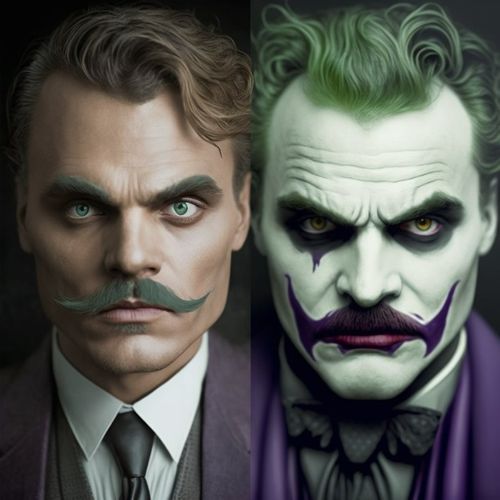Why did Nietzsche REALLY go insane?
Jan 16, 2023 · 4 mins read
0
Share

Nietzsche the thinker V/S Nietzsche the man
Nietzsche: writer of timeless books, philosopher without equal, life coach to many even today. In January 1889, he ran across a road, hugged a horse, and went insane. What happened? The answer involves Nietzsche’s terrible failures, his wild successes, and the price of genius👇
Save
Share
Syphilis? There are 5 major symptoms - Nietzsche had 0. His “asymmetrical pupils” led to the diagnosis but his right pupil had always been bigger. Cybulska, a psychiatrist, has called this the “misdiagnosis of the millennium.” Here’s a physician on how the story spread:

Save
Share
But Nietzsche did go mad. Leonard Sax argues that Nietzsche had a brain tumor that worsened post-1889. Perhaps hereditary - the autopsy of Nietzsche’s father had shown brain "softening." THEN there’s the list of psychoactive drugs and hallucinogens that Nietzsche took:

Save
Share
Nietzsche failed to realize his aesthetic vision. Rene Girard in “Dionysus v/s the Crucified” and Darryl Cooper on his podcast make a damning argument: Nietzsche didn’t live a Nietzschean life. The dissonance between what he preached and how he lived did him in.
True?
Save
Share
The Nietzschean Übermensch is a man who dominates his surroundings, exerts control, and has a fiercely independent mind. Nietzsche failed to become popular in his lifetime, he always remained under the control of his sister to some degree and kept losing out in love triangles.
Save
Share
Rene Girard: “What will happen if we start judging Nietzsche according to his own criteria? Where are his victories? Was not his life an almost continuous defeat? Is not defeat the worst bacillus for the soul?” Nietzsche above all must’ve been painfully aware of this gap.
Save
Share
Nietzsche fell for his friends’ love interests THREE TIMES, Girard wrote that Nietzsche was "unable to desire on his own." He had “no confidence” in his desires unless they overlapped with his friends’. Where’s the violently independent streak of the Übermensch? Absent.
Save
Share
Girard’s point: Nietzsche’s sanity imploded due to monumental cognitive dissonance. In “Will To Power” Nietzsche celebrates Napoleon for imposing the “inner consistency” of his vision on the world. Ironically, Nietzsche’s inner life was fractured.
Save
Share
But perhaps, for Nietzsche, going mad was always part of the plan? Head over to part 2...
Save
Share
0